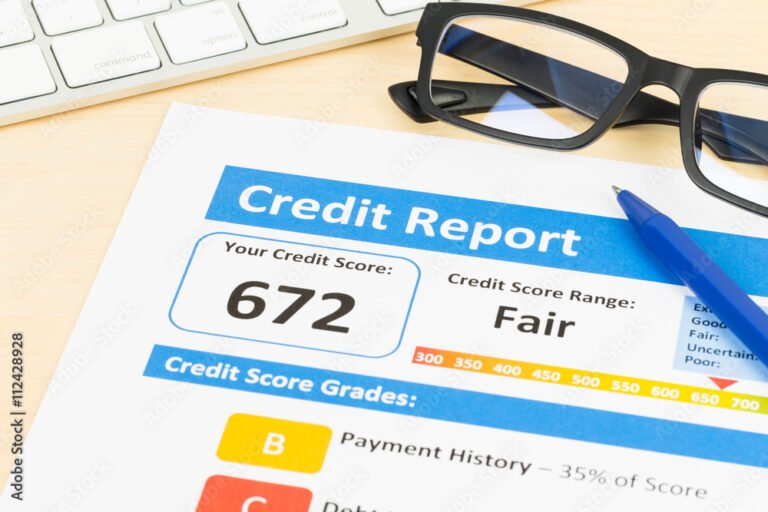How To Build Excellent Credit In An Uncertain World
You may be wondering how to build excellent credit, and I’m here to guide you through it. Having great credit can open doors to better loan rates, rental opportunities, and financial freedom. I’ll share the simple steps you can take to improve your credit score, along with helpful tips to maintain your financial health. Let’s take this journey together so you can achieve the credit score you deserve!
Key Takeaways:
- Pay your bills on time to establish a reliable payment history.
- Keep credit card balances low in relation to your credit limit to maintain a healthy credit utilization ratio.
- Diversify your credit mix by having different types of credit accounts, such as credit cards, installment loans, and retail accounts.
- Regularly check your credit report for errors and dispute any inaccuracies to ensure your credit history reflects your true financial behavior.
- Avoid opening too many new accounts at once, as this can negatively impact your credit score in the short term.
The Credit Score Breakdown
Understanding how your credit score is calculated can help demystify the process and empower you to take control of your financial health. Several factors contribute to your score, and being aware of them allows you to make informed decisions that will enhance your creditworthiness over time. Let’s break down these components so you can work towards achieving that excellent score.
The Components that Matter Most
The five main factors impacting your credit score are payment history, amounts owed, length of credit history, new credit, and types of credit used. Among these, payment history accounts for 35% of your score, making it the most significant factor. Understanding the weight of each component helps prioritize where to focus your efforts.
How Each Factor Influences Your Score
Each component of your credit score plays a unique role in determining your overall rating. Payment history and amounts owed are the heavy hitters, while the length of credit history, new credit inquiries, and the mix of credit types refine your score further. A positive payment history builds trust, while high credit utilization can indicate financial strain.
Delving deeper into how these factors work reveals interesting insights. For instance, a missed payment can stay on your report for up to seven years, dramatically impacting your score; even one late payment can cause a drop of 50 points or more. In contrast, keeping your credit utilization ratio below 30% not only helps maintain your score but can also help you secure better rates when applying for loans. By actively managing these components—paying on time, reducing debt, and maintaining a diverse credit portfolio—you can see proactive improvements in your overall credit health.
Smart Strategies for Credit Building
Establishing excellent credit requires a blend of persistence and strategic actions. You can enhance your score through consistent habits—like paying bills on time, maintaining low balances on credit cards, and understanding the impact of credit inquiries. Let’s explore some practical strategies to boost your credit score effectively.
Timing Payments: The Power of Consistency
Establishing a pattern of timely payments significantly boosts your creditworthiness. Set up reminders or automate your payments to ensure they are made on or before their due dates. A single missed payment can drop your score by up to 100 points, so consistency really pays off.
Effective Use of Credit Cards and Loans
Using credit cards wisely can help you build credit while also enabling rewards. Aim to use around 30% of your credit limit to keep your utilization ratio healthy, which is a key factor in your credit score. I recommend making small purchases and paying them off each month to show consistent payment behavior.
For effective credit card and loan use, I find that keeping my credit utilization rate below 30% is beneficial—not only does it demonstrate responsible credit use, but it can also improve my credit score. For instance, if you have a credit limit of $10,000, try to keep your balance under $3,000. Furthermore, opening a mix of credit accounts, such as installment loans and revolving credit, can enhance your score. Just ensure that you can manage the payments without overspending, as discipline is key in navigating credit responsibly.
The Pitfalls to Avoid on Your Credit Journey
Avoiding pitfalls on your credit journey is as vital as implementing smart strategies. Misunderstandings about credit can lead to mistakes that hamper your progress. Being informed about the common missteps and recognizing the potential dangers can help you maintain and even enhance your score. Here are key areas where I suggest you tread carefully.
Common Missteps that Diminish Your Score
Neglecting payments, overspending on credit lines, and forgetting to keep your credit utilization under 30% are common missteps many encounter. Late payments, for example, can linger on your report for up to seven years, drastically lowering your score. Additionally, closing old accounts can inadvertently reduce your available credit and shorten your credit history, both of which are critical components of your score.
The Dangers of Excessive Credit Inquiries
Too many inquiries on your credit report can signal risk to lenders. Each time you apply for credit, a hard inquiry is recorded, which can temporarily lower your score by a few points. While one or two inquiries won’t wreak havoc, accumulating several in a short period often suggests financial distress and can significantly impact your overall creditworthiness.
Excessive credit inquiries can leave a lasting impression on hopeful lenders. If you find yourself shopping around for loans or credit cards, do it within a focused timeframe—typically 30 days—instead of sporadically over months. This way, multiple inquiries for the same purpose count as just one, minimizing the effects on your credit score. Keeping your inquiries in check ensures that your efforts to build credit aren’t undermined by a misstep that could have been easily avoided.
Leveraging Tools and Resources for Maximum Impact
I’ve found that utilizing various tools and resources can significantly enhance my credit-building efforts. From credit monitoring services to professional financial guidance, these resources can streamline your path to achieving excellent credit. Having the right tools at your disposal not only makes tracking your progress easier but also arms you with the knowledge needed to make informed decisions. You’ll feel more empowered to take control of your credit journey and optimize your efforts effectively.
Utilizing Credit Monitoring Services
Credit monitoring services have become an crucial part of my credit-building strategy. By providing real-time updates on my credit score and alerting me to any changes, they help me stay on top of my credit health. Many services offer insights into how certain financial behaviors impact my score, allowing me to adjust my habits accordingly. Best of all, they often include identity theft protection, giving me peace of mind while I work towards my goals.
Finding the Right Financial Advice and Guidance
Consulting with a financial expert can transform your credit-building journey. By seeking guidance tailored to your unique situation, you can access personalized strategies that maximize your efforts. Professionals can help you decipher complex credit reports, identify areas to improve, and give you tips on leveraging credit resources effectively. Ultimately, surrounding yourself with knowledgeable advisors can make a world of difference.
In my experience, finding the right financial advisor begins with researching professionals who specialize in credit management. It’s ideal to choose someone who understands the intricacies of credit scores and financial products in depth. For instance, a certified credit counselor often provides free workshops, alongside one-on-one sessions, where you can gain insights into credit building. Networking through local community banks or credit unions can yield valuable referrals. By tapping into expert advice, you’ll be more equipped to craft a personalized plan and reach your credit goals faster.
The Long Game: Maintaining Credit Excellence
Achieving excellent credit is just the beginning; maintaining that status requires ongoing diligence and the right financial habits. Regularly monitoring your credit score and adjusting your financial behaviors help to solidify your creditworthiness over time. By making informed choices, you can sustain your credit excellence and ensure you are always in a favorable position for future financial opportunities. For detailed insights on How to Build a Good Credit Score and Credit History, consider this as a living document to guide you in your journey.
Creating Sustainable Financial Habits
Sustainable financial habits are the backbone of maintaining excellent credit. This involves careful budgeting, living within your means, and prioritizing savings. I find that setting aside a specific amount each month for unexpected expenses ensures I never have to rely on credit cards, which can lead to higher balances and missed payments. Consistently using credit responsibly while tracking my spending makes it easier to identify areas where I can improve and stay on course toward my financial goals.
The Importance of Regular Credit Reviews
Regular credit reviews are crucial for staying on top of your financial game. I periodically check my credit reports to catch any discrepancies or unauthorized accounts that could affect my score. Annual reviews, especially when paired with an examination of my spending patterns and debts, empower me to make more informed financial decisions and tactics moving forward.
By reviewing my credit reports at least annually, I can identify trends and areas needing attention. This proactive approach allows for adjustments in my credit usage and helps me maintain a healthy credit utilization ratio. Moreover, I set reminders to review my score several times throughout the year, keeping my financial goals in check and taking necessary actions promptly when changes occur. This habit helps me spot any potential red flags before they evolve into bigger issues, ensuring I stay on the path of credit excellence.
Final Words
The journey to building excellent credit is both rewarding and empowering. I’ve found that staying organized with payments, keeping my credit utilization low, and checking my credit report regularly can make a big difference. By being patient and responsible with my financial habits, I can achieve the credit score I desire. Together, with consistent effort, you and I can pave the way to a brighter financial future filled with opportunities.
FAQ
Q: What are the key factors that influence my credit score?
A: Your credit score is influenced by several factors. The main components include payment history, which accounts for about 35% of your score; credit utilization, which is around 30%; length of credit history, contributing about 15%; new credit inquiries, making up 10%; and types of credit used, which also accounts for 10%. Understanding these factors can help you focus on specific areas to improve your credit.
Q: How can I improve my payment history?
A: Improving your payment history requires consistency in making payments on time. Set up reminders or automatic payments to ensure bills are paid promptly. Additionally, consider paying more than the minimum required payment, as this can help reduce your balance faster and avoid missed payments.
Q: Is it beneficial to use credit regularly?
A: Yes, using credit regularly can be advantageous, but it’s important to do so responsibly. Keeping small balances on your credit cards and paying them off monthly can show lenders that you can manage credit wisely. Just ensure that your credit utilization remains low—ideally under 30%—to positively impact your credit score.
Q: What steps can I take if I have a low credit score?
A: If you have a low credit score, start by obtaining a copy of your credit report to identify areas for improvement. Dispute any inaccuracies you might find. Then, focus on reducing your debt, making on-time payments, and possibly seeking a secured credit card to build or rebuild your credit profile. Keeping a budget can also aid in managing your finances effectively.
Q: How can I maintain a good credit score once it’s established?
A: To maintain a good credit score, continue to make timely payments, keep your credit utilization low, and avoid opening too many new accounts within a short period. Periodically review your credit report for errors and keep an eye on your overall financial health. Establishing good financial habits will help you keep a solid credit standing over time.








